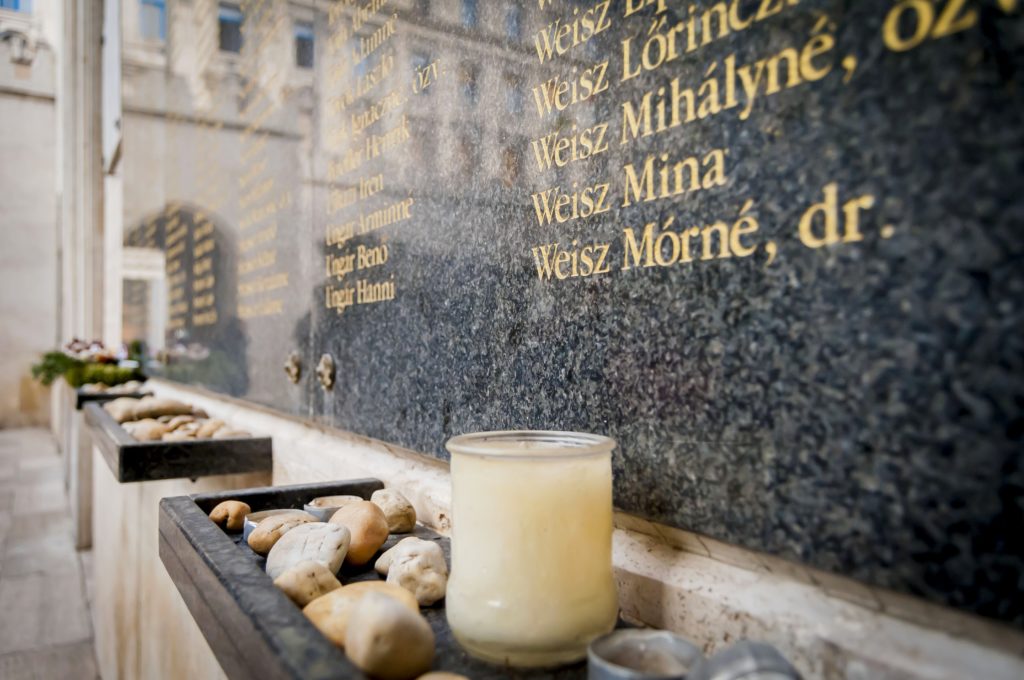Australia/Israel Review
The Last Word: Landscape of Terror
Sep 15, 2021 | Jeremy Jones

With so much attention paid to the 20th anniversary of the September 11, 2001 terrorist attacks in the USA, it is instructive to look at the situation in Australia and the Jewish world in the preceding months.
Few may remember that, in December 2000, the long-established “Chanukah in the Park” opposite Sydney’s Great Synagogue was cancelled on the grounds that it was “too difficult to secure.”
In the six months between Oct. 1, 2000, and March 31, 2001, 228 acts of violence against Jews were reported to Australian communal organisations, to that point the most intense period of assault, firebombing and physical intimidation ever recorded. (By contrast, a total of 280 incidents had been reported in the entire 12 months ending in September 1999).
The attacks came from a number of sources, including far-right wing thugs, individuals claiming that they were threatening Jews as part of their advocacy for Palestinians and some assailants who newspapers reported called out “Allahu Akbar” after throwing firebombs.
An incendiary device was thrown into a synagogue that was hosting a large group of people at the time, and private homes were targeted along with communal institutions.
Parallel with this was a resurgence in activity by a range of antisemitic organisations promoting a farrago of conspiracy theories.
The global concern with the activities of neo-Nazi organisations inspired the convening of the Stockholm International Forums, where governments came together to both assess the situation regarding racism and look at best-practice methods for doing something about it.
The first Forum, in 2000, concentrated on Holocaust Education and Remembrance, leading to the formation of the International Holocaust Remembrance Alliance.
The second, in 2001, “International Forum: Combatting Intolerance”, brought 450 representatives from close to 50 countries and many international organisations together. It featured a series of informed and passionate presentations from the Swedish Prime Minister, the Speaker of the Austrian Parliament, Canadian international law expert and tireless human rights campaigner Irwin Cotler and many other global figures.
I was given the honour of presenting on “Combatting Holocaust Denial Through Law” in one of many sessions focussing on assessing the effectiveness of responses to extremism.
The Forum Declaration concluded, “In the name of justice, humanity and respect for human dignity we pledge to continue combatting all forms of intolerance and to do all we can to bring about a world of inclusive societies speedily in our day.”
Immediately after 9/11, the peak Australian Jewish, Muslim and Christian organisations issued a media statement which mourned the victims and grieved with those who lost loved ones, and also considered what was necessary to do in the face of terrorism motivated by an ideology based on the division of society into those worthy of life and those condemned to death.
In part, this letter, of which I was a signatory, read, “Our compassion for the victims and our horror at the inhumane deeds must not become an excuse for hatred or bigotry or be exploited by those who seek to divide us on the basis of religion or ethnic origin.
“Together we call upon our people to respond to the evil by uniting, as Australians and as human beings, in reaffirming respect for life, for human rights, for peace and for justice.”
In 2021, a few days before the 20th anniversary, the NSW Counter Terrorism Police revealed they were tracking more than 1,000 “people of interest”, with about 20% of the force’s workload being devoted to the extreme right, and the overwhelming bulk of the remainder dealing with radicals using Islam as their rationale and justification.
Violent extremists, very often having obsessive hatred of Jews as a central part of their philosophy, were present and active before September 2001 and continue to be so today.
The challenge we face as a society and as individuals is to make sure we do everything to protect their potential targets while protecting the freedoms and respect for each other which the extremists despise so much.






